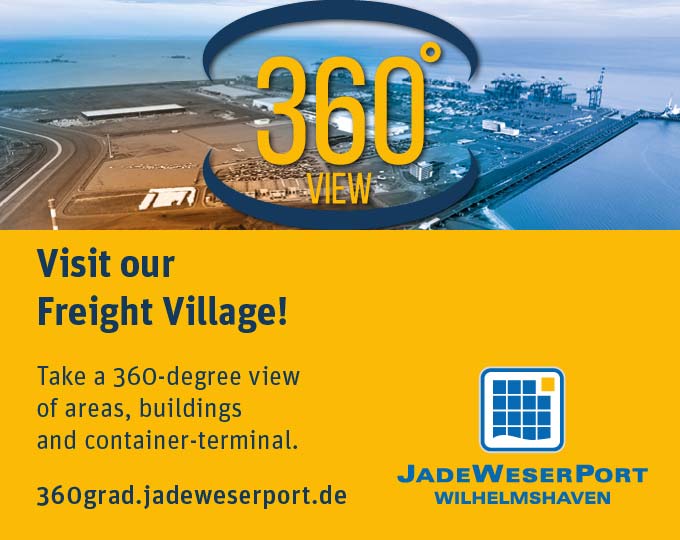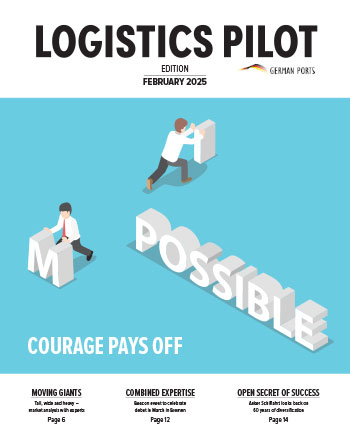Cell-based conveyor technology enables packages to be sorted more efficiently and containers to be unloaded more quickly.
Cellumation’s goal is ambitious … at some point in the future, every package delivered across the globe will have come into contact with one of the high-tech company’s cells by means of smart conveyor technology, an innovation for which the Bremen-based start-up has already won a series of awards and attracted significant investors.
Photos: cellumation, Universität Bremen/Tim Laue
Modular conveyor system
Their latest product is called ‘Celluveyor Bulksort’ and is used by CEP (courier, express and parcel) service providers in their sorting facilities. Parcels and packages arrive in a somewhat haphazard manner at the distribution centres and initially have to be separated from one another and sorted before they can be processed further. “Until now, this has often been done manually, which is time-consuming, physically demanding and leaves you susceptible to making mistakes,” says Thamer. The ‘Celluvator Bulksort’ system now allows packages to be separated automatically and sorted into different baskets or outlets. “Our system can sort parcels based on their size, postcode and barcode, as well as labels and tags, with the aid of its identification system,” Thamer explains. A ‘vision sys-tem’ that has several 3D cameras installed above it identifies the objects to be transported based on their barcodes. Data concerning their position within the system is then transmitted continuously, which allows any deviations from their expected position to be corrected immediately. Using the system to unload containers is also part of the business model. “If the boxes contain general cargo that is not transported on pallets, unloading can be very time-consuming,” reports the founder. What’s more, the system developed in Bremen can also be used when very different products are stowed in a container in order to make efficient use of the freight space, especially when freight rates are extremely high, equipment is lacking and there is insufficient capacity on board. “We can use the automated system to sort and separate very different goods from one container simultaneously,” says Thamer.Facts
Cellumation
Area of business: Material flow optimisation in intralogistics
Established: 2017
Headquarters: Bremen
Employees: 60
It was football that kicked everything off. The experts from Cellumation quite literally turned football-playing robots on their heads, which was the inspiration for their innovative idea.
Variable layouts
“Software control makes complex conveyor movements possible on a much smaller scale,” explains the founder. One example, he continues, is the Celluveyor-Depal application for separating layers of packages, which can save 95% of floor space compared to conventional systems. The modular design also allows for variable layouts, based on customer requirements and product size, and cells can also be reused and merged into new systems. Since the software can identify the individual products, no long resetting times are required when goods change, Thamer explains. Those who opt to use the system do not have long to wait, in any case – from the moment of delivery, everything can be installed and fully up and running within just a few days. “The cells themselves don’t require any maintenance, and the belts can even be replaced quite easily by non-professionals in less than five minutes,” says Thamer, explaining how the founders have also taken maintenance times into account. All this has apparently also won over their new investors, Göttingen-based investment company Arkadien Finanz and its CEO Julia Schomburg, with whom the start-up was able to successfully conclude a second round of seven-digit financing in October. “In the future, our technology will also enable inner-city microhubs belonging to various last-mile service providers to function. Indeed, this is what we and our investor’s co-shareholder, Boldly, are looking to be the first to launch in Göttingen,” Thamer tells us. With their product, however, the Bremen-based company has not only turned a team of footballing robots on its head, won start-up awards and successfully completed its second round of financing. Since last August, one of the company’s 2.7 m² sorters, with a capacity of 3,500 parcels per hour, has been in operation at logistics service provider DHL in Greven. Indeed, it is safe to conclude that one zany idea has ultimately grown into a successful company that presently employs 60 people and is making plans to leap across the pond to the United States. They play football there, too, you know! Well … kind of … (cb)







